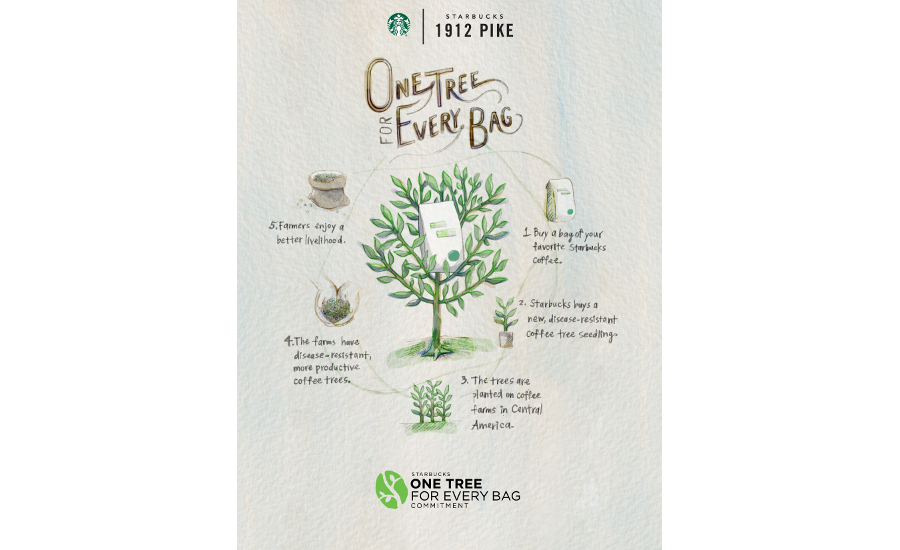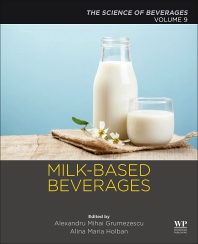Starbucks distributes 1 million coffee trees to farmers worldwide
Coffee company plants trees for every bag of coffee purchased through 2016

Seattle-based Starbucks Coffee Co. expanded its commitment to supporting the specialty coffee industry by announcing that it will distribute coffee trees to farmers most impacted by coffee rust, a plant fungus that damages millions of coffee trees around the world, the company says. Through September 2016, Starbucks will plant a coffee tree for every bag of coffee purchased in participating U.S. stores.
“Purchasing from more than 30 countries, Starbucks scale affords us the opportunity to bring customers the most unique, high-quality coffee from around the world. It also gives us the responsibility to make sure we invest in tangible ways that help to ensure farmer livelihoods and the stability of the entire supply for the industry,” said Craig Russell, executive vice president of global coffee for Starbucks, in a statement. “We have heard directly from farmers that helping them get new rust-resistant trees will make the most impact. We are figuring out the way to do that while offering our customers an opportunity to get involved.”
The company will contribute $0.70, the average cost of a tree, to Conservation International for every bag of coffee sold from participating stores in the United States to foster thriving coffee communities.
Beginning in Mexico, Guatemala and El Salvador, Starbucks will work with Sustainable Management Services (SMS), the company’s partner in the export and delivery of green coffee, to successfully germinate the seedlings and distribute the trees. The distribution of each coffee tree will be supported by Starbucks Coffee and Farmer Equity (C.A.F.E.) Practices, which were developed more than a decade ago with Conservation International to safeguard responsible purchasing practices and economic, social and environmental standards, globally, the company says. These sourcing standards then are augmented by Starbucks Farmer Support Centers that provide on-the-ground agronomy services. Today, Starbucks has six farmer-support locations around the world and will add two more: one in Sumatra, Indonesia, in 2015 and another in Mexico opening in 2016, it adds.
Starbucks Mexico implemented a similar coffee tree revitalization program last year —Todos Sembramos Café(We All Grow Coffee) — which distributed more than 180,000 rust-resistant plants to over 60 coffee farms in Chiapas. The program also provides resources and training to improve the quality of Chiapas’ crops and to maintain the stability of their lands. An additional 360,000 coffee trees will be donated in the program’s second year, totaling more than a half a million trees.
“The rust was destroying our yields, cutting production by 40-60 percent,” said Martiniano Moreno, coffee farmer from Chiapas who supports a family of eight, in a statement. “It was very difficult to watch. Our entire community relies on coffee. It's who we are. It’s how we take care of our families; our children.”
To date, Starbucks has invested more than $70 million in its comprehensive approach to ethical sourcing; supporting coffee farming communities, helping to mitigate the impact of climate change, and supporting long-term crop stability and farm sustainability. Through these initiatives and Starbucks’ comprehensive approach to sourcing high-quality coffee, farmers will have the support they need to manage climate variables and improve the infrastructure of their crops influencing coffee quality, sustainability and overall profitability for the entire specialty coffee industry, the company adds.
Looking for a reprint of this article?
From high-res PDFs to custom plaques, order your copy today!








